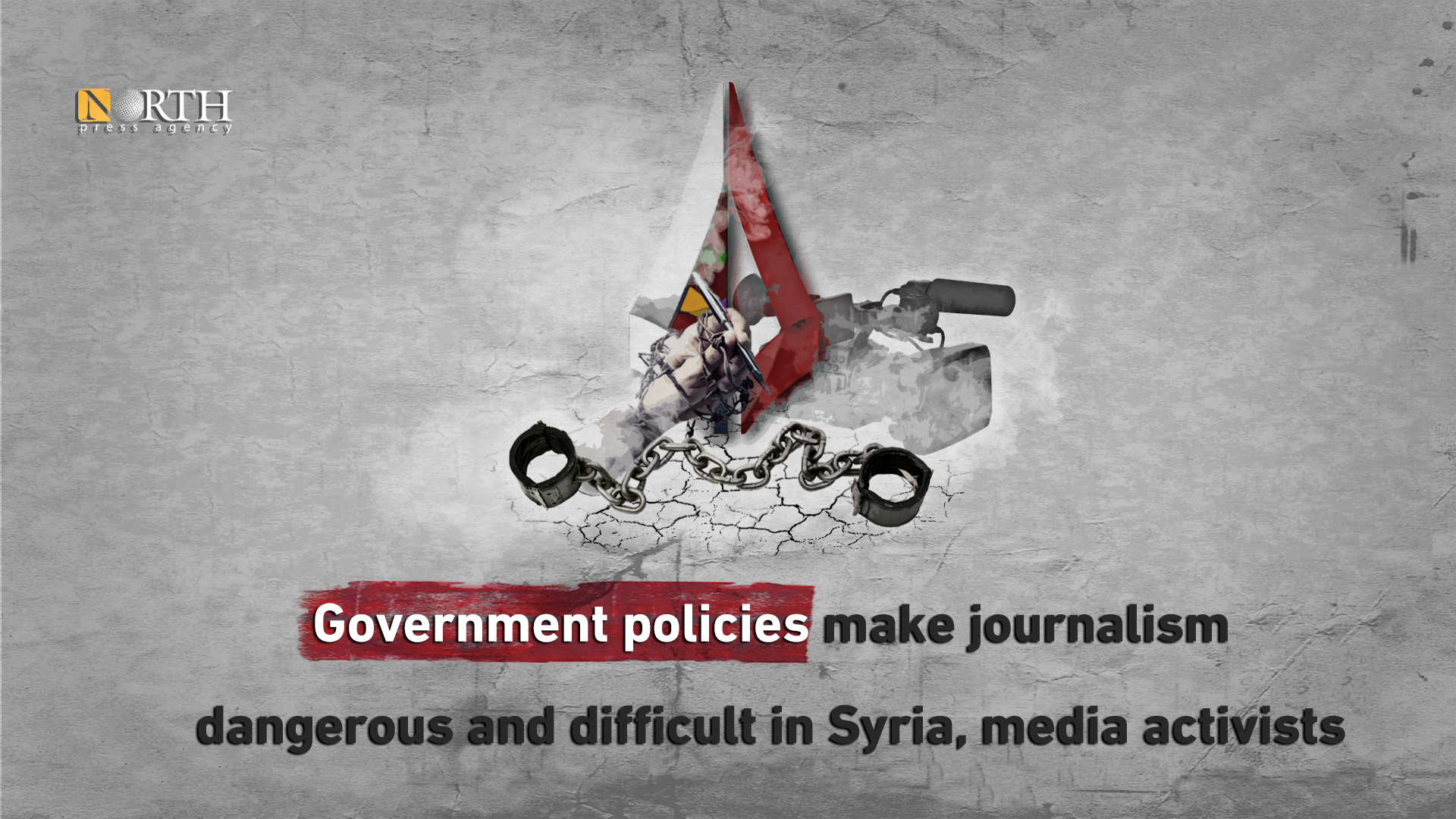ALEPPO, Syria (North Press) – Risk of arrest, abduction or death make journalism extremely dangerous and difficult in Syria in general and in the government-held areas in particular.
Mustafa Hussein, a pseudonym for a journalist working for a local radio station in the city of Aleppo, north Syria, does not dare to make a report or a story or even post on his Facebook page about the poor living conditions in his country or criticizing its mismanagement, government failure and the corrupt.
Hussein fears arrest by the government security services again after he had criticized in a post the taxes imposed by the government and its mismanagement of the economic issue at the beginning of 2018.
Despite the passage of more than three years since his arrest, Hussein has not forgotten the four months he spent moving between the Criminal Security Branch in Aleppo, the Central Prison and the Terrorism Court in Damascus.
At that time, he was accused of spreading misleading news and cooperating with foreign parties, these accusations was based on a false report made by a journalist working as a security informant, as well as on Hussein’s previous Facebook posts in which he touched on the performance of some government figures and criticized corruption in the country.
Journalists working in the city of Aleppo say that they fear criticizing the government and its failure to manage the crises in the country, or even exposing corruption in its institutions, not only through media reports, but even on their personal accounts on social media.
Legitimizing arrest
During the past ten years, Syria recorded a notable decline in press freedom, and was classified as one of the worst places for journalistic work, as Syria is ranked 173rd out of 180 countries in RSF’s 2021 World Press Freedom Index.
Almost all Syrian journalists have been summoned by either government security branches or parties unrelated to the media sector.
“I thought journalist in the government-held areas enjoys immunity against arbitrary arrest and that media plays a key role in exposing faults and corruption, but I was totally wrong,” Hussein said.
“Now, when I publicize a post or a report, I flirt the government in order not to anger the security,” he added.
In March 2018, the Ministry of Justice of the Syrian government announced details of a law regarding cybercrime, as well as it created special courts, and appointed judges to look into these crimes.
Meanwhile, oppositionists believe that the anti-cybercrime law is only a means to arrest critical and opposing voices on social media.
Threats
Few days ago, Kinan Wakkaf, a journalist in Latakia-based newspaper Al-Wahda, was arrested in the government-controlled city of Tartus shortly after posting an alarming video on February 5 reporting that the security forces were looking for him and raided his house.
Wakkaf was arrested on the back of criticizing, on his Facebook account, the lavish reception that a Syrian actress and her husband were received at the presidential palace while the rest of the population must cope with constant shortages.
During January 2021,the Berlin-based Syrian Center for Press Freedom issued a report on media violations in Syria that one assassination attempt and five arrests against Syrian media professionals took place throughout Syria.
In late 2021, Yamen Omran, a pseudonym for a journalist working for a local agency in Aleppo, was threatened after publishing several posts on his Facebook account criticizing the project of the rented parking and the company which invested it.
Omran said he received a phone call and was warned not to post anything about the company.
“Every journalist, even if he does not criticize the government, is under the security eye and he may be interrogated at any moment,” Omran further explained.
Red tape
Syrian Journalists work according to a unified Workers’ Act that has been implemented since 2000.
So that, Journalists working in the government-held areas face difficulty choosing possible materials since there are dozens of Red Tapes that must be avoided and not addressed including government corruption and faults.
“The government considers reports covering topics related to bread shortage, loss of gas, scarcity of fuel, poor services and others as anti-state charges,” Ziad al-Asali, pseudonym for a journalist working for a local newspaper in Aleppo, said.
In October 2021, the Syrian Ministry of Interior announced the arrest of 160 people on charges of cybercrime.
Although media activists are the most familiar with the society’s problems, suffering and requirements, and are aware of the extent of governmental negligence and corruption as well as the major thieves and those supporting them, “They cannot speak freely and criticize them, because they would be silenced and would be lead to security branches,” according to al-Asali.

